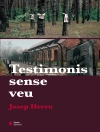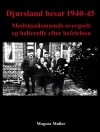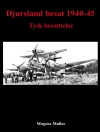“A wonderful subject, beautifully written, evoking a world startlingly like and unlike our own. Essential reading for anyone interested in the origins and possibilities of our current global crisis.”—Rory Stewart, author of Politics on the Edge
A new history of the turbulent 1960s told through the life of U Thant, the first UN secretary-general of color, whose decisions once shaped global war and peace.
In the early 1960s, a peaceful world was an imaginable goal. The still-young United Nations was widely respected and regarded as humankind’s best hope for resolving global conflicts. African and Asian nations, having recently won their freedom from colonial domination, sought dignity and influence on the world stage. At the helm of their international efforts was U Thant, a practicing Buddhist from a remote town in Burma who, as the UN’s first non-Western secretary-general, became the Cold War era’s preeminent ambassador of peace.
From the moment of his predecessor’s mysterious death in 1961, Thant faced a deluge of violent conflicts in Congo, Yemen, Cyprus, and Nigeria, as well as one between India and Pakistan, that threatened larger conflagrations.
Crucially, during the Cuban Missile Crisis, he played an indispensable role—virtually hidden until now—in defusing tensions and helping both superpowers find a way back from nuclear confrontation. For years Thant also challenged Washington over its war in Vietnam, identifying paths to peace that could have saved the lives of millions.
Drawing on newly declassified documents, Thant’s grandson, historian Thant Myint-U, gives a riveting account of how his grandfather’s gentle yet willful disposition shaped his determination to avoid a third world war, give voice to the newly decolonized world, create a fairer international economy, and safeguard the environment. Rather than a vestige of an idealistic past, U Thant’s fight for peace is central to a fresh understanding of our world today.
About the author
Thant Myint-U is an award-winning historian, writer, conservationist, and international public servant. He is the author of four books and his writing has been featured in many publications, including the New York Times and the Financial Times.












